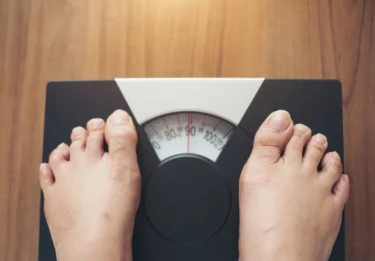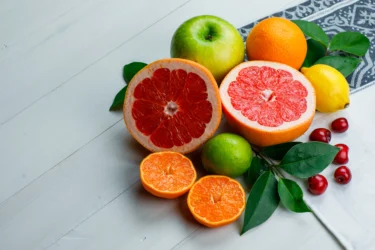Best Home Remedies for Uric Acid By Dr. Siddharth Gupta
By Dr Siddharth Gupta +2 more

Get,

to manage your symptom
Get your,


4 Cr+ families
benefitted

OTP sent to 9988776655



You’ve successfully subscribed to receive
doctor-approved tips on
Whatsapp

Get ready to feel your best.

Hi There,
Download the PharmEasy App now!!


Register to Avail the Offer
Send OTPBy continuing, you agree with our Privacy Policy and Terms and Conditions

Hi There,
Sign up on PharmEasy now!!
Trusted by 4 crore+ families

OTP sent to 9988776655



You have unlocked 25% off on medicines




Code: NU25
By Dr Siddharth Gupta +2 more
Table of Contents
What exactly does a high uric acid level mean, and should it be our concern? Uric acid is a waste product present in the blood. Uric acid is produced when compounds called purines are metabolized[1]. Under normal conditions, uric acid passes through the kidneys and urine. However, when we eat food high in purine content, uric acid levels increase in the body, leading to the formation of uric acid crystals. This deposition of uric acid crystals in the body is called gout. Let’s read about it in detail.

When we eat food with high purine content, there are chances of increased uric acid levels. Some of the foods that can lead to an increase in uric acid are:
The increase in uric acid does not present with specific symptoms unless it has progressed to the occurrence of diseases such as gout and uric acid nephrolithiasis (kidney stones). The symptoms of these diseases may manifest as the following:
The increased uric acid in the blood does not indicate the need for treatment. Most people with high uric acid levels do not have any symptoms and do not require long-term treatment.
Although high uric acid does not indicate the need for treatment, it might require minor changes in lifestyle and food habits. It is also believed that lifestyle is a key contributing factor to the development of increased uric acid and gout. Some of the possible home remedies/modifications are listed below.

Research[3] shows that uric acid levels correlate with an individual’s body mass index (BMI) and metabolic syndromes (heart diseases, diabetes, etc.). Weight management through dietary modifications and exercise might help reduce the uric acid levels in the blood. Furthermore, a gradual weight loss might be more helpful for uric acid levels than drastic changes.

Activities like sunbathing and exercise-induced profuse sweating, which lead to dehydration, might cause an increase in uric acid levels. Thus, dehydration might be a factor leading to a high uric acid level and a gout attack. Therefore, your doctor might suggest that you drink plenty of water. The recommended daily intake of water is six to eight glasses, which might change according to the weather conditions and daily activities[4].

Food containing purine may or may not lead to an increase in uric acid. A study[13] conducted from 1988-1994 showed that high consumption of seafood and meat causes a rise in uric acid in the blood. Another study[5] on 45,000 men over 12 years showed that a moderate intake of vegetables rich in purine, like peas, lentils, asparagus, etc., did not increase uric acid. Therefore, your doctor will recommend a proper diet to decrease high uric acid levels.

Sweetened beverages or soft drinks contain fructose. Fructose is one of the most commonly used sugars. Increased intake of sugars, high-fructose corn syrup, etc., has led to the occurrence of new-age diseases, like diabetes, obesity, etc., including high uric acid (hyperuricemia) and gout. Therefore, avoiding such beverages might help check uric acid levels in the body[6].

Choi et al. [7] conducted an epidemiological study to find that dairy products might have the potential to help decrease uric acid levels. It might also decrease the risk of gout. The mechanism of action is still not clear. However, the activity of milk in lowering the serum uric acid level was noted in comparison to soy. In another study[8] by Kurajoh et al., they hypothesised that milk might also facilitate the excretion of uric acid by increasing its urinary clearance.

Based on anecdotal evidence[9], cherries have been used for decades for gout treatment. In 1950, Blau noticed that his gout pain subsided after eating some cherries. Thus began the investigation of cherries and their potential for gout. Several studies found that the potential antioxidant (free radical neutralizing) and anti-inflammatory properties of cherry and cherry juice might be helpful in gout. A significant reduction in gout attacks (by 35%) was seen in a study[10] containing 633 patients. Therefore, cherries might be helpful for gout and uric acid.

A decrease in the uric acid level, probably due to its increased excretion, was seen as a result of vitamin C supplementation in a study. Another study[11] containing 46,994 men over 20 years showed a positive correlation between serum uric acid level and vitamin C intake. It was seen that the subjects taking vitamin C had a lower risk of developing gout. This finding might be due to its potential antioxidative properties. Therefore, vitamin C might help lower uric acid levels in the blood.

A recent development[12] showed that there might be a relationship between stress and uric acid. Daily emotional stress might lead to an increased uric acid level in the body. Therefore, it might be suggested to manage stress using various time management methods and seek help when required.
Though studies show the benefits of the given herb and home remedies in the condition, these are insufficient. There is a need for large-scale human studies to establish the true extent of the benefits of these home remedies on human health. Thus, these should only be taken cautiously and never as a substitute for medical treatment.
In the absence of symptoms, high uric acid is not a condition or a disease that is actively looked for by doctors. However, high uric acid may lead to gout or kidney stones. Suppose you have gout symptoms or kidney stones; your doctor might ask for a blood examination. The blood examination may or may not reveal high uric acid.
If you are concerned that the current medication you’re taking might lead to high uric acid, you should talk to your doctor. However, ensure that you do not discontinue, replace, or make any amendments to any ongoing treatment. Kindly consult a doctor.
You must not rely on home remedies alone for the treatment of the condition and should consult a qualified doctor for any advice on the condition if the symptoms do not improve with home remedies.
Also Read: 8 Best Home Remedies For Piles
A high uric acid level is not a disease or a condition that requires active monitoring or long-term treatment. Most people might not even have any symptoms. However, high uric acid might lead to gout and kidney stones. These might have symptoms such as pain, swelling, redness, etc. (in gout) and pain in the flank, vomiting, etc. (kidney stones). However, there are lifestyle modifications or dietary changes like avoiding purine-rich foods, and increasing water intake, including dairy products and cherries in your diet, etc. that might help reduce excess uric acid.
Cherries have been used for ages for gout. It may have antioxidant and anti-inflammatory properties, which might help with gout. However, its potential use for uric acid reduction is not known. Kindly consult a doctor.
Vitamin C might help reduce the uric acid levels in the body. This might be due to its potential antioxidant activity. However, more research is required to prove its possible use.
No, there are no reports of bitter gourd as a home remedy for high uric acid.
Disclaimer: The information provided here is for educational/awareness purposes only and is not intended to be a substitute for medical treatment by a healthcare professional and should not be relied upon to diagnose or treat any medical condition. The reader should consult a registered medical practitioner to determine the appropriateness of the information and before consuming any medication. PharmEasy does not provide any guarantee or warranty (express or implied) regarding the accuracy, adequacy, completeness, legality, reliability or usefulness of the information; and disclaims any liability arising thereof.
Comments

Leave your comment...
You may also like
Comments